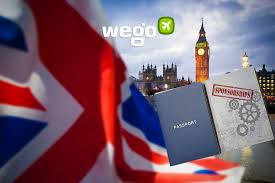Sponsoring a visa in the United Kingdom is a process that allows individuals or organizations to bring foreign nationals into the country for various purposes, such as work, study, or family reunification. Whether you are an employer looking to hire skilled workers from overseas, a university seeking to enroll international students, or a British citizen wishing to bring a spouse or family member to the UK, understanding the visa sponsorship process is essential. In this guide, we will explore the intricacies of sponsoring a visa in the UK, including the different types of visas available, eligibility criteria, application procedures, and obligations of sponsor visa in uk .
Types of Visas Requiring Sponsorship
Before diving into the sponsorship process, it's crucial to understand the different types of visas that require sponsorship in the UK:
-
Tier 2 (General) Visa: This visa is for skilled workers coming to the UK to fill a specific job vacancy that cannot be filled by a resident worker. Employers must obtain a sponsorship license and issue a Certificate of Sponsorship (CoS) to the prospective employee.
-
Tier 4 (Student) Visa: International students seeking to study in the UK at a recognized educational institution must be sponsored by that institution. The sponsor will issue a Confirmation of Acceptance for Studies (CAS), which the student includes in their visa application.
-
Family Visas: Spouses, partners, children, and other family members of British citizens or settled persons may apply for family visas. The sponsoring individual must meet specific financial and accommodation requirements to demonstrate their ability to support the applicant.
Eligibility Criteria for Sponsors
To sponsor a visa in the UK, sponsors must meet certain eligibility criteria, which vary depending on the type of visa and sponsoring organization. Some common requirements include:
-
Employer Sponsorship License: Employers must obtain a sponsorship license from the UK Home Office before they can sponsor foreign workers on a Tier 2 visa. This involves demonstrating that the organization is legitimate and capable of fulfilling its sponsorship duties.
-
Financial Solvency: Sponsors may need to demonstrate sufficient financial resources to support the sponsored individual, especially in the case of family visas.
-
Compliance with Immigration Rules: Sponsors must comply with all relevant immigration laws and regulations, including ensuring that sponsored individuals adhere to the conditions of their visas.
-
Good Immigration History: Sponsors with a history of non-compliance or immigration-related offenses may be ineligible to sponsor visas.
Application Procedures
The application process for sponsoring a visa in the UK typically involves the following steps:
-
Obtaining a Sponsorship License: Employers and educational institutions must apply for a sponsorship license from the UK Home Office. This involves completing an online application and providing supporting documentation.
-
Issuing a Certificate of Sponsorship (CoS) or Confirmation of Acceptance for Studies (CAS): Once the sponsorship license is approved, employers and educational institutions can issue CoS or CAS to prospective employees or students, respectively.
-
Visa Application by the Sponsored Individual: The sponsored individual then applies for a visa using the CoS or CAS provided by the sponsor. This typically involves completing an online application, attending a biometric appointment, and providing supporting documents.
-
Decision and Visa Issuance: The UK Visas and Immigration (UKVI) will assess the visa application and make a decision based on the applicant's eligibility and supporting documents. If approved, the visa will be issued, allowing the individual to travel to the UK.
Obligations of Sponsors
Once a visa is granted, sponsors in the UK have certain obligations they must fulfill:
-
Reporting Duties: Sponsors must report any significant changes in the sponsored individual's circumstances, such as changes to their employment or study situation, to the UK Home Office.
-
Compliance Monitoring: The UK Home Office may conduct compliance visits or audits to ensure that sponsors are meeting their obligations and that sponsored individuals are adhering to the conditions of their visas.
-
Record-Keeping: Sponsors must maintain accurate records relating to sponsored individuals, including copies of their visas and other relevant documents.
-
Reimbursement of Immigration Health Surcharge: Employers sponsoring Tier 2 visa holders are required to pay the Immigration Health Surcharge on their behalf.
In conclusion, sponsoring a visa in the UK is a complex process that requires careful attention to detail and compliance with immigration laws and regulations. Whether you are an employer, educational institution, or individual sponsor, understanding the requirements and obligations involved is essential for a successful sponsorship application. By following the guidelines outlined in this guide, you can navigate the visa sponsorship process with confidence and bring foreign talent and loved ones to the UK legally and responsibly.


No comments yet